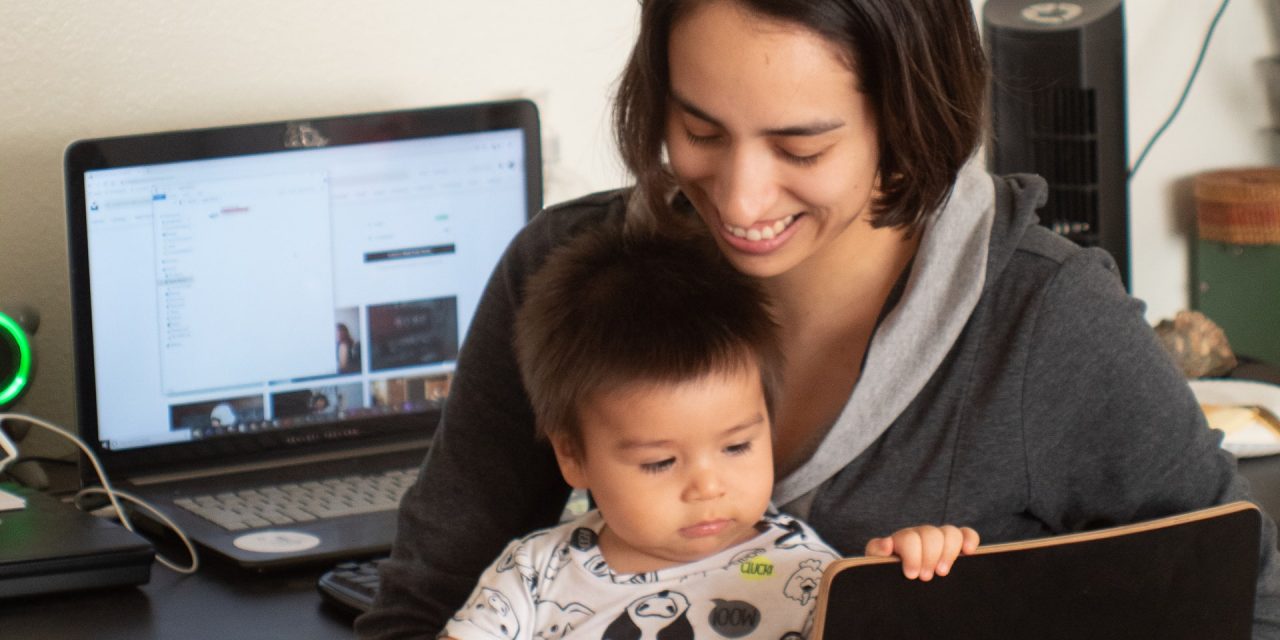10 Key Strategies for Juggling Work and Parenthood
Balancing work and parenthood is tough, but you can handle it by following these key strategies: Use time blocking to manage your day. Prioritize tasks wisely. Delegate to lighten your load. Opt for flexible work arrangements. Talk to your boss about your parenthood needs. Don’t forget self-care for your mental well-being. Build a strong support system. Set clear boundaries for work and family time. Remember, quality matters more than quantity. And there’s much more insight waiting for you to discover.
Key Takeaways
- Implement time blocking to manage daily tasks effectively.
- Embrace flexible work arrangements for better balance.
- Delegate responsibilities to lighten the load.
- Utilize reliable childcare options for peace of mind.
- Establish clear communication channels with employers and colleagues.
Time Blocking

To effectively balance work and parenthood, consider implementing time blocking as a strategic tool for managing your daily schedule. Time management plays an important role in ensuring you can fulfill both your professional and parental responsibilities without feeling overwhelmed. By allocating specific time blocks for different tasks, you can enhance your productivity and create a sense of structure in your day.
Task organization is key when utilizing time blocking effectively. Start by listing all your work and parenting duties, then prioritize them based on urgency and importance. Allocate designated time slots for each task, ensuring you account for both work commitments and quality time with your family. Be realistic about the time needed for each activity to avoid overloading your schedule.
Prioritize Tasks

Prioritizing tasks effectively is key to successfully managing the demands of both your work and parenting responsibilities.
Task prioritization and time management are essential skills to maintain a healthy balance between your professional and personal life. When juggling multiple responsibilities, it’s essential to identify urgent and important tasks that require immediate attention.
By organizing your to-do list based on priorities, you can guarantee that critical deadlines are met while still having time for your family.
Efficiency plays a significant role in task prioritization. Focus on completing high-priority tasks efficiently before moving on to less critical ones. This approach helps in maximizing productivity and reducing stress levels.
Effective time management allows you to allocate dedicated slots for work and family time, ensuring that neither aspect of your life is neglected.
Stress management is closely linked to how you prioritize tasks. By tackling important tasks first, you prevent them from piling up and causing unnecessary stress. Remember, it’s okay to seek help or delegate tasks when needed to maintain a healthy work-life balance.
Delegate Responsibilities

When it comes to juggling work and parenthood, delegating responsibilities can be a game-changer.
Task sharing and shared responsibilities can lighten the load and create a more balanced approach to managing both work and family life.
Don’t hesitate to lean on your support system and distribute tasks to make things more manageable.
Task Sharing
Share the load by delegating responsibilities to maintain a balanced approach to work and parenting. It’s important to view task sharing as a team effort; involve your partner, if applicable, in dividing household chores and parenting duties. Effective time management is key to streamlining tasks and promoting a harmonious work-life balance.
Start by creating a list of all the tasks that need to be accomplished daily, weekly, and monthly. Prioritize these tasks based on urgency and importance. Delegate responsibilities based on each person’s strengths, interests, and availability. Communicate openly with your partner about expectations and ensure a fair distribution of tasks.
Remember that task sharing isn’t about perfection but about working together efficiently. Be flexible and willing to adjust responsibilities as needed. By sharing tasks, you not only lighten the load but also foster a sense of teamwork and mutual support in managing both work and parenting responsibilities effectively.
Shared Responsibilities
Consider delegating responsibilities as a way to effectively manage your work and parenting duties while maintaining a healthy balance. Shared responsibilities are essential in maneuvering through the complex web of co-parenting dynamics. By dividing household chores and childcare arrangements with your partner, you not only lighten the load but also foster a sense of teamwork and support within the family.
When it comes to childcare arrangements, make sure both you and your partner are actively involved. Share responsibilities such as school pickups, extracurricular activities, and bedtime routines. This not only guarantees that both parents are equally engaged in the child’s life but also allows for quality bonding time.
Additionally, involving both parents in school-related activities like parent-teacher meetings, school events, and helping with homework can strengthen the parent-child relationship and show your child the importance of education. By sharing these responsibilities, you create a harmonious balance between work and parenting, alleviating stress and promoting a healthier family dynamic.
Flexible Work Arrangements
Considering the demands of both work and family life, embracing flexible work arrangements can be a game-changer. Remote work benefits like saving commuting time and improving productivity often go hand in hand with maintaining a healthy work-life balance.
Remote Work Benefits
Embrace the flexibility that comes with remote work arrangements to effectively balance your professional responsibilities with parenting duties. With personalized schedules, you can structure your workday around your child’s needs, whether it’s attending school events or doctor appointments. Remote workspaces allow you to create a comfortable and functional environment that suits both your work and family life.
Working remotely provides the opportunity to be present for your children while still excelling in your job. You can take short breaks to help with homework, have lunch together, or even sneak in a quick playtime session. This balance fosters a stronger bond with your family and enhances your overall well-being.
Moreover, remote work eliminates the stress of commuting, giving you more time to spend with your loved ones. It also allows for greater flexibility in managing unexpected situations that may arise with your children.
Work-Life Balance Tips
To effectively balance your professional responsibilities with parenting duties, optimizing flexible work arrangements can greatly contribute to achieving a harmonious work-life balance. When considering time management, flexible work options like telecommuting or adjusted hours provide the freedom to structure your day around both work commitments and family needs. By having control over when and where you work, you can better allocate your time to meet deadlines while still being present for important family moments.
Moreover, flexible work arrangements can notably reduce stress levels. The ability to adapt your work schedule to accommodate unexpected family events or emergencies can alleviate the pressure of trying to balance competing priorities. This flexibility allows you to handle work challenges without sacrificing your presence in your children’s lives.
Communication With Employer
When discussing communication with your employer about balancing work and parenthood, it’s essential to be transparent and proactive in your approach. Start by familiarizing yourself with your company’s policies on parental leave and childcare options. Knowing these options can help you make informed decisions when planning your work and parenting responsibilities.
When considering parental leave, discuss with your employer the available options for taking time off to care for your child. Be clear about your needs and how much time you may require, ensuring that you understand the process for requesting and utilizing parental leave benefits.
Additionally, if you need to explore childcare options to support your work schedule, communicate openly with your employer about your needs. Discuss flexible work arrangements, remote work possibilities, or any other accommodations that could help you balance your responsibilities effectively.
Family Calendar Sync

Struggling to keep track of everyone’s schedules? Shared scheduling apps and color-coded events calendars can be your saving grace.
By syncing up your family’s activities, you can better coordinate responsibilities and avoid double bookings.
Stay organized and reduce the chaos with these practical tools.
Shared Scheduling Apps
Syncing family calendars through shared scheduling apps can greatly streamline your daily routines and enhance coordination between work and parenting responsibilities. These apps offer a centralized platform for group organization, allowing every family member to view and update schedules in real-time.
By utilizing shared scheduling apps, you can efficiently manage conflicting commitments and avoid unnecessary overlaps in your busy lives.
The beauty of these apps lies in their ability to promote family coordination effortlessly. You can set reminders for important events, schedule recurring tasks, and even color-code different activities for easy identification. This level of organization not only helps you stay on top of your work and parental duties but also fosters a sense of teamwork within the family unit.
When choosing a shared scheduling app, look for features that cater to your specific needs, such as multiple calendar views, customizable notifications, and the option to sync across various devices.
Color-Coded Events Calendar
To enhance your family’s coordination and organization further, consider utilizing a color-coded events calendar for syncing your schedules seamlessly. Color-coded organization can be a game-changer in managing your family’s busy life. Assign a specific color to each family member and use it consistently across all events and appointments. This visual cue allows everyone to quickly see who needs to be where and when, making event coordination a breeze.
When setting up your color-coded calendar, be sure to include all important events, deadlines, and activities. This practice not only helps with day-to-day scheduling but also enables effective long-term planning. Family time management becomes more efficient when everyone is on the same page.
To make the most of your color-coded calendar, establish a routine for updating and reviewing it regularly. Encourage all family members to contribute to the calendar, ensuring that it remains accurate and up-to-date.
Self-Care Routine

Maintaining a consistent self-care routine is vital for balancing the demands of work and parenthood effectively. It’s important to prioritize self-care activities to safeguard your mental health amidst the hustle of daily life.
Incorporating relaxation techniques into your routine can help you unwind and recharge, enabling you to tackle your responsibilities with renewed energy.
Effective time management is key to fitting self-care into your busy schedule. Allocate specific time slots for activities that rejuvenate you, whether it’s reading a book, going for a walk, or practicing mindfulness.
Remember, taking care of yourself isn’t a luxury but a necessity, especially when juggling multiple roles.
Find what self-care activities resonate with you the most and make them a non-negotiable part of your routine. By dedicating time to prioritize your mental well-being, you’re better equipped to handle the challenges that come with balancing work and parenthood.
Support System
Establishing a dependable support system can greatly ease the challenges of balancing work and parenthood. Parenting workshops are a valuable resource where you can learn new strategies, gain insights, and connect with other parents facing similar struggles. These workshops provide a supportive environment that can boost your confidence and equip you with practical tools to navigate the complexities of raising children while managing a career.
When it comes to childcare options, having reliable and trustworthy caregivers can give you peace of mind while you’re at work. Explore different childcare facilities, interview potential nannies or babysitters, and seek recommendations from fellow parents. Knowing that your children are in safe and nurturing hands can help you focus better on your work responsibilities.
Building a strong support system is essential for maintaining a healthy work-life balance. By actively seeking out parenting workshops and securing suitable childcare options, you’re taking proactive steps to make sure that both your professional and family life thrive harmoniously.
Boundaries Setting
Establishing clear boundaries is essential for effectively managing the demands of both work and parenthood. Personal boundaries are vital; it’s okay to say no when you feel overwhelmed. Set work boundaries by clearly defining your work hours and sticking to them as much as possible. Communicate these boundaries to your colleagues and employers, ensuring they understand your availability and limitations.
Communication boundaries are equally important. Create a balance by designating specific times for work-related emails and calls, separating them from your family time. Be assertive in asserting your need for uninterrupted family moments.
Time boundaries are essential to prevent work from encroaching on your family time. Prioritize tasks and allocate specific time blocks for work and family commitments. Remember that quality is more important than quantity when managing both work and parenthood.
Quality Over Quantity
To effectively balance work and parenthood, prioritize the quality of your time and efforts over sheer quantity. When juggling the demands of work and parenting, it’s essential to focus on making the most out of the time you have available rather than trying to do everything at once. Embrace the concept that quality interactions and moments can have a more profound impact on both your work performance and your relationship with your children than simply spending more time without purpose.
As you navigate the delicate balance between work challenges and parenting milestones, consider how you can maximize the quality of the time spent with your children. Engage in meaningful conversations, be present during important events, and create lasting memories that truly matter.
Remember that being there for key parenting milestones can outweigh the quantity of time you spend away due to work commitments. By consciously choosing quality over quantity, you can cultivate a fulfilling and harmonious life that nurtures both your career and your family relationships.
Frequently Asked Questions
How Can I Maintain a Healthy Work-Life Balance?
Maintaining a healthy work-life balance is vital. Focus on time management to prioritize tasks. Remember self-care is important too. Stay flexible and communicate openly with your employer and family. Balancing responsibilities is challenging, but achievable.
What Are Some Effective Ways to Handle Unexpected Tasks?
When unexpected tasks pop up, remember to breathe. Time management is key; prioritize what must be done first. Stay flexible and don’t be afraid to delegate tasks when needed. You got this!
How Do I Navigate Challenging Conversations With My Employer?
When managing difficult conversations with your employer, concentrate on negotiating flexibility, managing expectations, setting boundaries, and advocating your needs. Clear communication, understanding each other’s perspectives, and finding common ground can help foster a positive outcome.
What Can I Do to Ensure My Well-Being Doesn’t Suffer?
To guarantee your well-being doesn’t suffer, prioritize self-care practices like exercise, meditation, or hobbies. Use effective time management techniques such as setting boundaries, delegating tasks, and scheduling breaks. Remember, taking care of yourself is key.
How Do I Establish Boundaries Without Feeling Guilty?
Setting limits is essential for your well-being. Remember, self-care isn’t selfish. Communicate openly with others about your boundaries. Prioritize what truly matters. Guilt is natural but know it’s okay to put yourself first.
Conclusion
To wrap up, remember to be kind to yourself as you navigate the challenging balancing act of work and parenthood. Utilize these strategies to help manage your time, delegate tasks, and communicate effectively with your employer.
Remember to prioritize self-care and set boundaries to maintain a healthy balance. With a strong support system and a focus on quality over quantity, you can successfully juggle both work and parenthood.
Stay positive and remember, you’ve got this!

Chad Adan Kace, a young dad from Vermont, shares his parenting journey with a touch of humor and lots of love. Father to a lively baby, he explores the joys and challenges of fatherhood through his stories.







